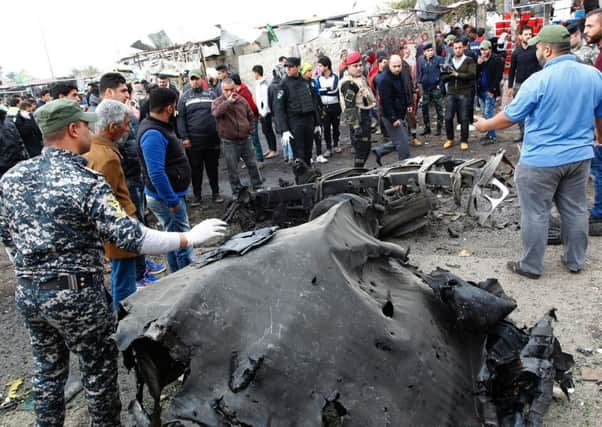Leader comment: We have an obligation to Iraq


But in December alone, 109 civilians were killed and 523 injured in Baghdad with Islamic State claiming responsibility for a string of bombings. And as IS get shifted out of Mosul and other areas they control the bombings will only get worse, as fanatics will carry on the fight on the streets of the country’s cities.
We have to recognise the huge human cost that the war is having on Iraq, and we have to understand that we have an ongoing responsibility to help bring the bloodshed to an end – we were at the forefront of the regime change invasion along with the United States.
Advertisement
Hide AdAdvertisement
Hide AdThe report by Sir John Chilcot found many failings of the UK but was specifically critical of the way in which the US dismantled the security apparatus of the Saddam Hussein army and described the whole invasion as a strategic failure. Of course the terrible violence is largely perpetrated by IS and its fanatics, but we could have served the Iraqi people better after choosing to get involved.
It is always difficult to stand back and watch dictators perpetrate atrocities on their own people, but at least now we know the long-term costs of not thinking action through from the start.
A lesson we seem not to have learnt in Syria.